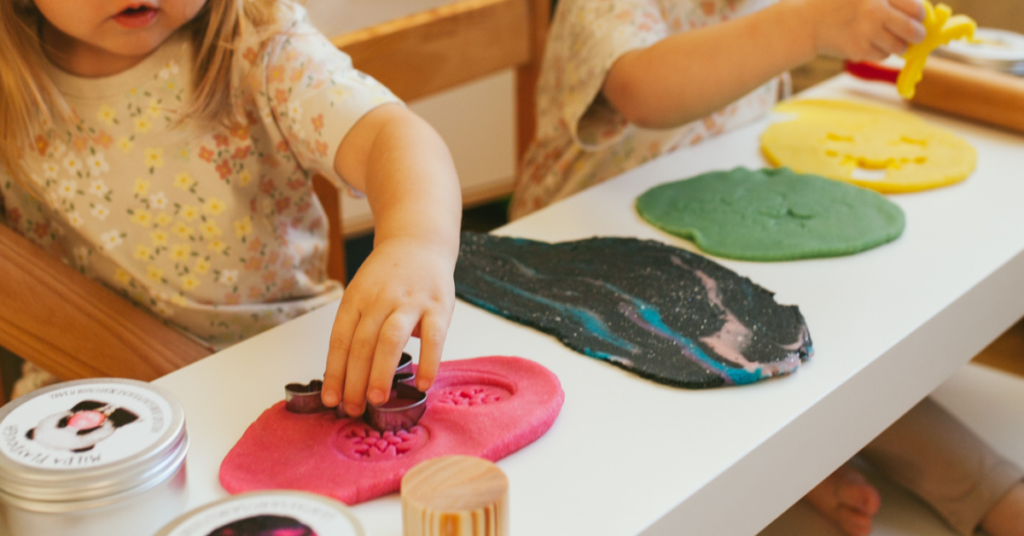The versatility of playdough: supporting child development
Playdough is a versatile tool with tremendous potential to support child development. Its sensory impact, creative outlet, and educational benefits make it an invaluable resource. Grete Liivak, the creator of Milda playdough, outlined why and how playdough develops children in various aspects..

Sensory Development
Playing with playdough engages multiple senses, improving fine motor skills, hand-eye coordination, and finger strength, which are crucial, for example, in activities like writing where eyes and hands need to work together. Milda Playdough stimulates the sense of sight: children see the colors, sparkle, glow, their created art, or how colors blend when mixed. Additionally, Milda Playdough comes with scents; for instance, yellow playdough smells like lemon. Mixing different scents while playing allows for the exploration of new smells and engages the sense of smell. The sense of touch is activated by textured sand playdough, and our playdough can be frozen, allowing for exploration of different temperatures.
Of course, hearing and taste senses are not left out. Playdough definitely makes sounds when playing, and sounds can be added to the game using shells, beads, wood, leaves, and more. In terms of taste, Milda Playdough is very salty, but it is safe, so there’s no need to worry if a child wants to taste it initially—it’s a new and interesting taste for them.
Creativity and Imagination
Playdough fosters imagination by allowing children to create endless games, their own worlds, and tell stories through play. In real life, a crocodile may be green, but in playdough play, it can be pink, have wings, eat grass instead, and even have a broken wing—how does it even move then!? This imaginary play world promotes cognitive and emotional development, enhancing problem-solving and critical thinking skills.
Language and Communication Skills
Playing with playdough develops children’s language skills. For example, children engage in conversations as they describe their creations and game to parents, peers, or teachers. Children also exchange ideas among themselves, expanding their vocabulary, developing communication skills, and enhancing their listening abilities.
Social and Emotional Development
Playing with playdough encourages children to communicate, discuss, share, collaborate, help each other, notice and praise each other, and empathize. It also provides a therapeutic outlet, allowing children to express their emotions through play and develop skills to manage their emotions and behavior.
Cognitive Development
Playdough stimulates cognitive development through activities such as classifying, sorting, mixing, and imprinting patterns. It provides opportunities for problem-solving, decision-making, and experimentation, promoting intellectual growth. It’s a good reminder for parents when their child starts mixing playdough colors together..
Playdough is a fantastic toy and tool to support a child’s development in various ways. It engages multiple senses, fosters creativity, improves language skills and communication, promotes social and emotional skills, and stimulates cognitive processes. Encouraging playdough play allows children to learn, explore, and develop while having fun.
Why is Milda plasticine special?
When creating Milda plasticine, these aforementioned points were taken into account. Milda plasticine is safe for children and does not pollute the world in which the same child has to live. This is the goal of Milda’s creator, and thanks to this, a natural plasticine has been created that is safe and compostable, colored with plants or mica, scented with essential oils or natural food essences, packaged in endlessly recyclable metal tins, and adorned with lovely paper stickers. Plasticine is safe and secure even for little explorers, whose initial excitement about the taste of plasticine may surpass its texture and color.
.
You don’t have Willuwalki yet?
You can get it here, for free of course.
